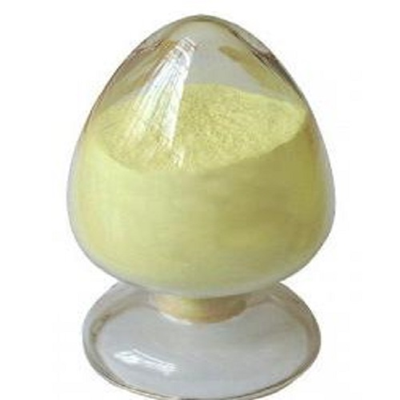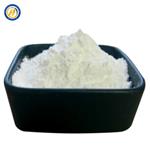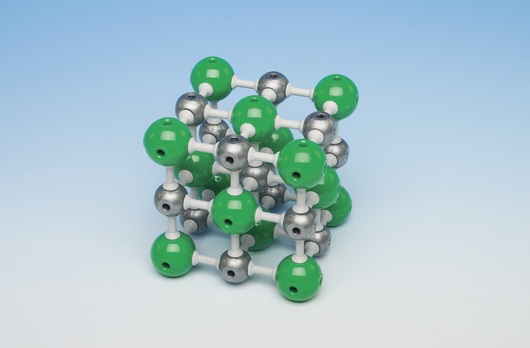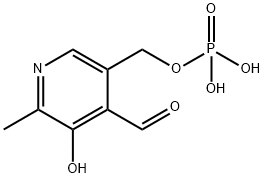Role of Pyridoxal phosphate in neonatal epileptic encephalopathy
Nov 20,2023
Introduction of Pyridoxal phosphate
Pyridoxal phosphate (PLP), the active cofactor form of vitamin B6 is required by over 160 PLP-dependent (vitamin B6) enzymes serving diverse biological roles, such as carbohydrates, amino acids, hemes, and neurotransmitters metabolism. Three key enzymes, pyridoxal kinase (PL kinase), pyridoxine 5'-phosphate oxidase (PNPO), and phosphatases metabolize and supply PLP to PLP-dependent enzymes through the salvage pathway. In born errors in the salvage enzymes are known to cause inadequate levels of PLP in the cell, particularly in neuronal cells.

PLP and NEE
The resulting PLP deficiency is known to cause or implicated in several pathologies, most notably seizures. One such disorder, PNPO-dependent neonatal epileptic encephalopathy (NEE) results from natural mutations in PNPO and leads to null or reduced enzymatic activity. Clinically, the phenotypes observed in NEE patients may include fetal distress, anemia, acidosis, asphyxia and hypoglycemia. NEE does not respond to conventional antiepileptic drugs but may respond to treatment with the B6 vitamers PLP and/or pyridoxine (PN).
Early treatment of patients is critical to prevent health deterioration and death. Surviving children are dependent on pyridoxine (PN) or PLP to control the disease for life, and in most instances may be developmentally handicapped. There are known cases, however, where B6- dependent NEE result in mild to moderate developmental delay.
Several inborn errors in the vitamin B6 salvage pathway enzymes, involving PNPO, PL kinase and phosphatases have been identified. These pathogenic mutations in most instances lead to defective metabolism of PLP, either through reduced or null activities of these enzymes, or potentially affect PLP transport. Consequently, not enough PLP is available to activate newly-formed apoB6 enzymes. In majority of cases, the most immediate effect of PLP deficiency is seen in neurological or seizure disorders, e.g. convulsions and epileptic encephalopathy, and also suspected in Alzheimer's, Autism, Parkinson's and Schizophrenia. Only the errors in PNPO and phosphatase have been shown to cause seizures, most notably PNPO-deficient NEE that is responsive to PLP and sometimes to PN, and for phosphatases, pyridoxine-dependent HPP that is responsive to PN.
References
[1] MOHINI S. GHATGE . Inborn errors in the vitamin B6 salvage enzymes associated with neonatal epileptic encephalopathy and other pathologies[J]. Biochimie, 2021, 183: Pages 18-29. DOI:10.1016/j.biochi.2020.12.025.
- Related articles
- Related Qustion
- Biosynthesis of Pyridoxal Phosphate: A Crucial Coenzyme in Biochemical Reactions Jan 24, 2024
Pyridoxal phosphate is a crucial coenzyme in biochemical reactions. It is synthesized through DXP-dependent and R5P-dependent pathways, with implications for therapeutics and health.
- Pyridoxal phosphate: a coenzyme in many enzymatic processes Nov 10, 2023
Pyridoxal phosphate functions as a coenzyme in many enzymatic processes, including decarboxylation, deamination, transamination, racemization, and others. This article will introduce its mechanism and structure.
Pyridoxal-5'-phosphate monohydrate is a metabolite of vitamin B6. It has the ability to modify lysine and valine residues in proteins and has properties that inhibit purinergic receptors and intracellular calcium influx.....
Nov 20,2023APIThe space lattice of NaCl belongs to the cubic system, and its rock salt structure has a lattice constant of a=0.55870 nm and Na–Cl=0.27935 nm. The cleavage plane is (100).....
Nov 20,2023Inorganic saltsPyridoxal phosphate
54-47-7You may like
Pyridoxal phosphate manufacturers
- Pyridoxal phosphate
-

- $0.00 / 1kg
- 2024-04-29
- CAS:54-47-7
- Min. Order: 1kg
- Purity: 99%
- Supply Ability: 2000
- Pyridoxal phosphate
-

- $180.00 / 1Kg/Bag
- 2024-04-22
- CAS:54-47-7
- Min. Order: 1Kg/Bag
- Purity: 98.5% up / EP
- Supply Ability: 20 tons
- Pyridoxal phosphate
-

- $0.00 / 1kg
- 2024-04-22
- CAS:54-47-7
- Min. Order: 1kg
- Purity: 99.8%
- Supply Ability: 1000 kg





